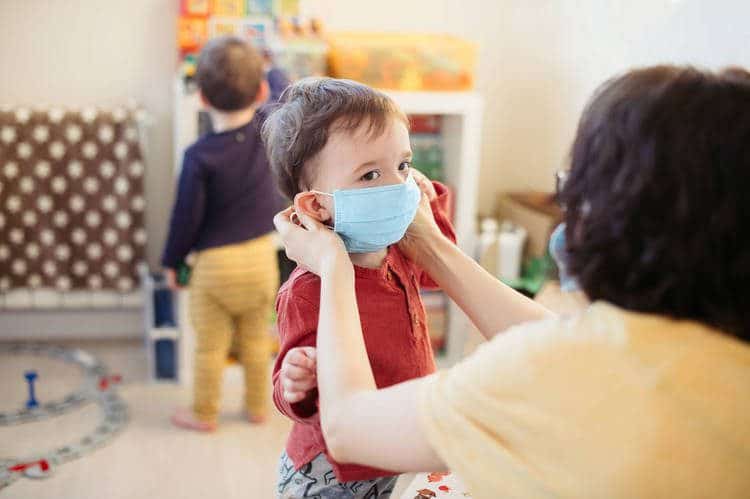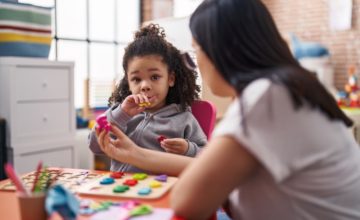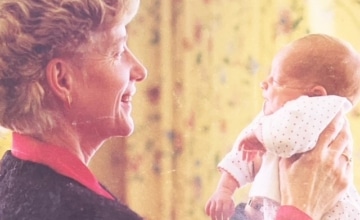Helping Families With Young Children Navigate Transitions in the Aftermath of Pandemic Restrictions
by Jennifer Chacon

The COVID-19 pandemic changed lives suddenly. Entire families dramatically changed their daily routines in order to meet quarantine specifications in their regions. When cities and states are able to transition to less restrictive phases in response to the quarantine, such as opening of businesses, child care and early childhood education facilities it will be important to consider the transition process and how to best support young children. Wherever your region is in the re-opening process, there are steps you can take now to make the transition easier.
Emotional Reactions
During the transition process, infants and young children may face a variety of emotions and experiences. These may include:
- confusion about things changing once again;
- fear of the unknown;
- excitement as they begin to see their friends and family members and as they return to playgrounds or early childhood education centers;
- difficulty adapting to change, such as trouble establishing new routines and regulating emotions; and
- frustration as they adapt to new ways of behaving in public spaces, such as maintaining physical distancing and wearing masks.
Grief and Loss
Grief is a normal reaction to both positive and negative changes. Many children will experience some form of grieving due to the large and small losses that come with any change in routines. Some children may also be experiencing grief due to the death of a loved one due to the pandemic. Common reactions among young children to the death of caregivers and other loved ones include (Lieberman et al., 2003):
- persistent crying,
- searching for the lost caregiver,
- accepting and rejecting the support of comforting adults,
- sadness and withdrawal,
- anxiety,
- fear, and
- possible developmental regression such as sleep disturbances.
Suggestions for Parents and Caregivers
Parents and caregivers also face challenges and must make difficult decisions during these times, including:
- When should I return to work?
- Is the early childhood education site safe for my child’s return?
- Is it safe to expose my children to the friends and family members we have missed so much?
- If my child has returned to child care, is it safe for their grandparents to be exposed to them?
The following suggestions can help parents and caregivers assist young children to successfully navigate the transition process:
- Maintain routines and support the gradual development of new routines: Return to everyday routines as best as possible; for example, strive to have regular mealtimes and waking and bedtime rituals. Regular routines for eating, playing, sleeping, and other daily activities offer young children a sense of normalcy as they return to their previous day-to-day schedules or establish new ones. If necessary, build new routines that support changes in their schedules. Transition cues can support the child in determining what comes next. Transition cues can be visual, auditory, or verbal, such as a singing a particular song on the way to child care or reading a book before bed (Wisconsin Alliance for Infant Mental Health, 2020).
- Be mindful of possible changes in behaviors: Young children might exhibit a variety of behaviors that might be perceived as challenging to parents and caregivers. Young children might withdraw from frustrating or difficult situations during the transition process. The changes may lead to moodiness, increased clinginess, need for attention and reassurance, sleep difficulties, and social withdrawal. Changes might also cause developmental regression such as “baby talk,” or toileting accidents. Parents or caregivers may witness a resurgence of temper tantrums. These normal responses to change can be ameliorated by providing predictability, comfort, reassurance, and meeting the child’s need with love, understanding, and nurturance (Nebraska Association for Infant Mental Health, 2020).
- Guide young children in labeling their emotions and expressing their feelings: Young children may experience a range of feelings. Assure young children that all feelings are okay. Help children name the emotion they are experiencing and talk with them about their feelings—even if they cannot yet talk themselves! Allow young children to express their feelings through play. Follow the child’s lead as you engage with them in play. Share what you observe as they play, and validate their feelings. Books are also great tools to support and teach children about emotions.
- Practice mindfulness: Mindfulness is noticing what is going on outside and inside of us with acceptance and kindness (Kinsner et al., 2018). It is important for parents and caregivers to recognize and regulate their own feelings before responding to the needs of the child (Tait, 2020). Take a moment to calm yourself before reacting. Remain calm and model emotional regulation. Mindfulness activities can also be done with young children, such as guiding the child in a deep breathing exercise when feeling anxiety or frustration.
- Relationships, relationships, relationships: Responsive relationships serve as protective factors in times of stress. Nurture the relationship with the child and remain connected to social supports. Reach out when things become challenging and share ideas and strategies to address the challenges.
The transition process might be difficult and demanding. Nevertheless, remaining present and attuned to the needs of the young child will allow parents and caregivers to meet the needs that might arise.
Find additional professional resources related to the COVID-19 pandemic.
References
Center for Disease Control and Prevention. (2020). CDC COVID data tracker. Source
Kinsner, K., Gehl, M., & Parlakian, M. (2018). How can mindfulness support parenting and caregiving: A literature review. Source
Lieberman, A. F., Compton, N. C., Van Horn, P., & Ghosh Ippen, C. (2003). Losing a parent to death in the early years: Guidelines for the treatment of traumatic bereavement in infancy and early childhood. ZERO TO THREE.
Nebraska Association for Infant Mental Health. (2020). Supporting young children’s social emotional needs after change. Source
Tait, V. (2020, April 1). The pandemic toolkit parents need: 8 expert tips to help families stay regulated. Psychology Today. Source
Wisconsin Alliance for Infant Mental Health. (2020). Tips for supporting infants and young children’s transition as we re-open. Source
CONTACT
Program Director of Infant and Early Childhood Mental Health





